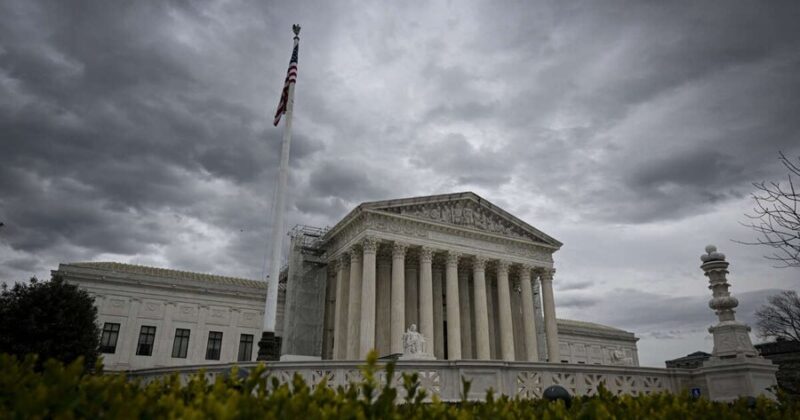On May 23, the U.S. Supreme Court ruled in favor of South Carolina’s newly redrawn congressional map, overturning a previous decision by a lower court.
The National Association for the Advancement of Colored People (NAACP) contested the map, claiming that lawmakers were racially motivated when redrawing district boundaries and engaged in “intentional racial discrimination.”
In 2023, a panel of federal judges determined that “race predominated over all other factors” when lawmakers redrew South Carolina’s First Congressional District, which is currently represented by Rep. Nancy Mace (R-S.C.). This conclusion was partially based on the relocation of over 30,000 Black voters to a different district.
According to court precedent, plaintiffs challenging a new district map must demonstrate that legislators prioritized race over other factors, such as contiguity, to prove that race was the predominant factor in redrawing the districts.
Justice Samuel Alito, writing for the majority, stated that the judges who issued the earlier ruling “clearly erred” because the challengers failed to provide sufficient proof that race was the predominant factor in redrawing the districts.
He wrote that the challengers “provided no direct evidence of racial gerrymandering, and their circumstantial evidence is very weak.” He further noted that “the challengers relied on deeply flawed expert reports.”
Justice Samuel Alito, appointed by former President George W. Bush, was joined in the decision by Chief Justice John Roberts, also a Bush appointee, as well as Justices Neil Gorsuch, Brett Kavanaugh, and Amy Coney Barrett, all appointed by former President Donald Trump.
Justice Clarence Thomas, also appointed by former President George W. Bush, wrote a concurring opinion.
Justice Elena Kagan, nominated by former President Barack Obama, submitted a dissenting opinion. She was supported by Justice Sonia Sotomayor, another Obama nominee, and Justice Ketanji Brown Jackson, appointed by President Joe Biden.
The 2023 ruling was issued by a panel including U.S. District Judges Mary Geiger Lewis and Richard Gergel, both nominated by President Obama, and U.S. Circuit Judge Toby Heytens, appointed by President Biden.
The new map, created after the receipt of data from the 2020 census, was enacted in 2022.
South Carolina Senate President Thomas Alexander, a Republican involved in creating the map, did not reply to a request for comment. South Carolina Governor Henry McMaster, also a Republican who approved the map, chose not to comment immediately on the ruling.
“Today, the Supreme Court has failed the American people. Voting rights have taken another gut punch, and the future of democracy in South Carolina is dangling by a thread,” Brenda Murphy, president of the South Carolina State Conference of the NAACP said in a statement.
South Carolina’s 1st Congressional District covers more than half of the state’s coastline and includes portions of Charleston. It is home to approximately 762,000 residents.
Republicans dominated elections in the district from the 1980s onwards. This trend was disrupted by former Representative Joe Cunningham (D-S.C.) in the 2018 election. However, after serving one term, he was defeated by Ms. Mace.
Ms. Mace won with 50.6 percent of the vote in 2020 and in 2022 earned another term with 56.3 percent of the vote.
Justice Alito additionally condemned the lower court judges for not holding the challengers accountable for their inability to present an alternative map demonstrating how lawmakers could have achieved their “legitimate political objectives” while producing “significantly greater racial balance.”
The majority also stated that they discovered similar errors in the lower court’s determination that lawmakers intentionally diminished the voting power of black people, as this conclusion relied on the same evidence used to analyze the claim of racial gerrymandering.
The Justices sent back the part of the case concerning vote dilution to the district court, with guidance on how to analyze dilution allegations.
In his opinion, Justice Thomas concurred with much of Justice Alito’s viewpoint, but he expressed his belief that the Supreme Court lacks the authority to decide claims of racial gerrymandering.
“Drawing political districts is a task for politicians, not federal judges. There are no judicially manageable standards for resolving claims about districting, and, regardless, the Constitution commits those issues exclusively to the political branches,” he wrote.
Developing story…
Share your thoughts by scrolling down to leave a comment.

